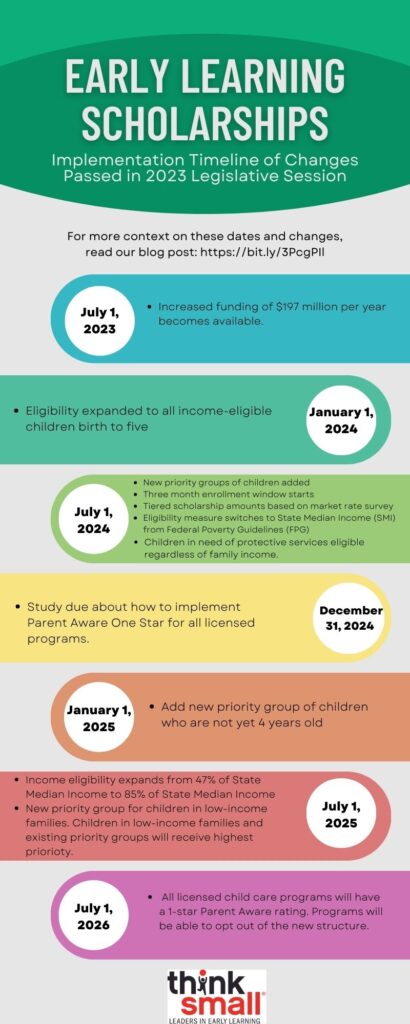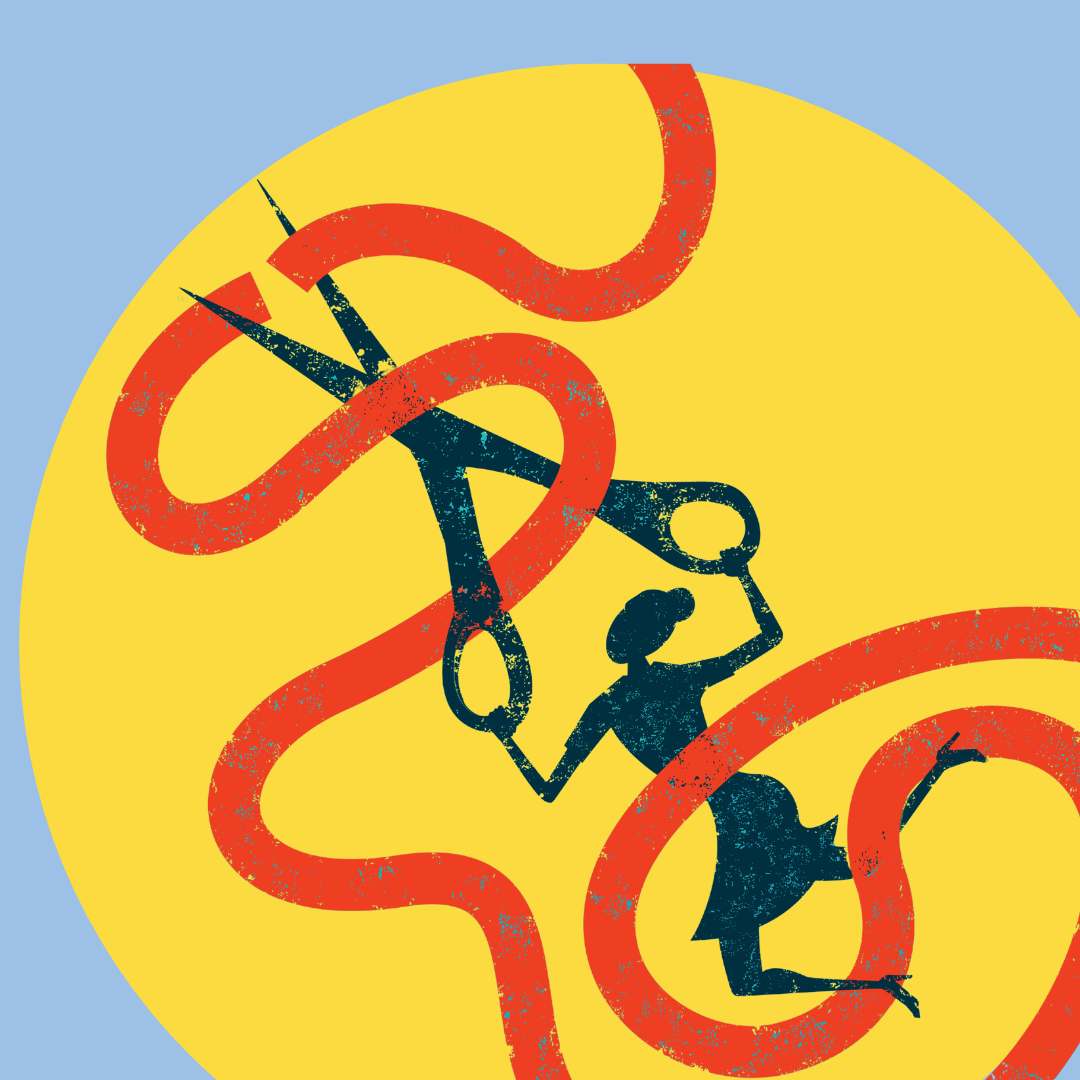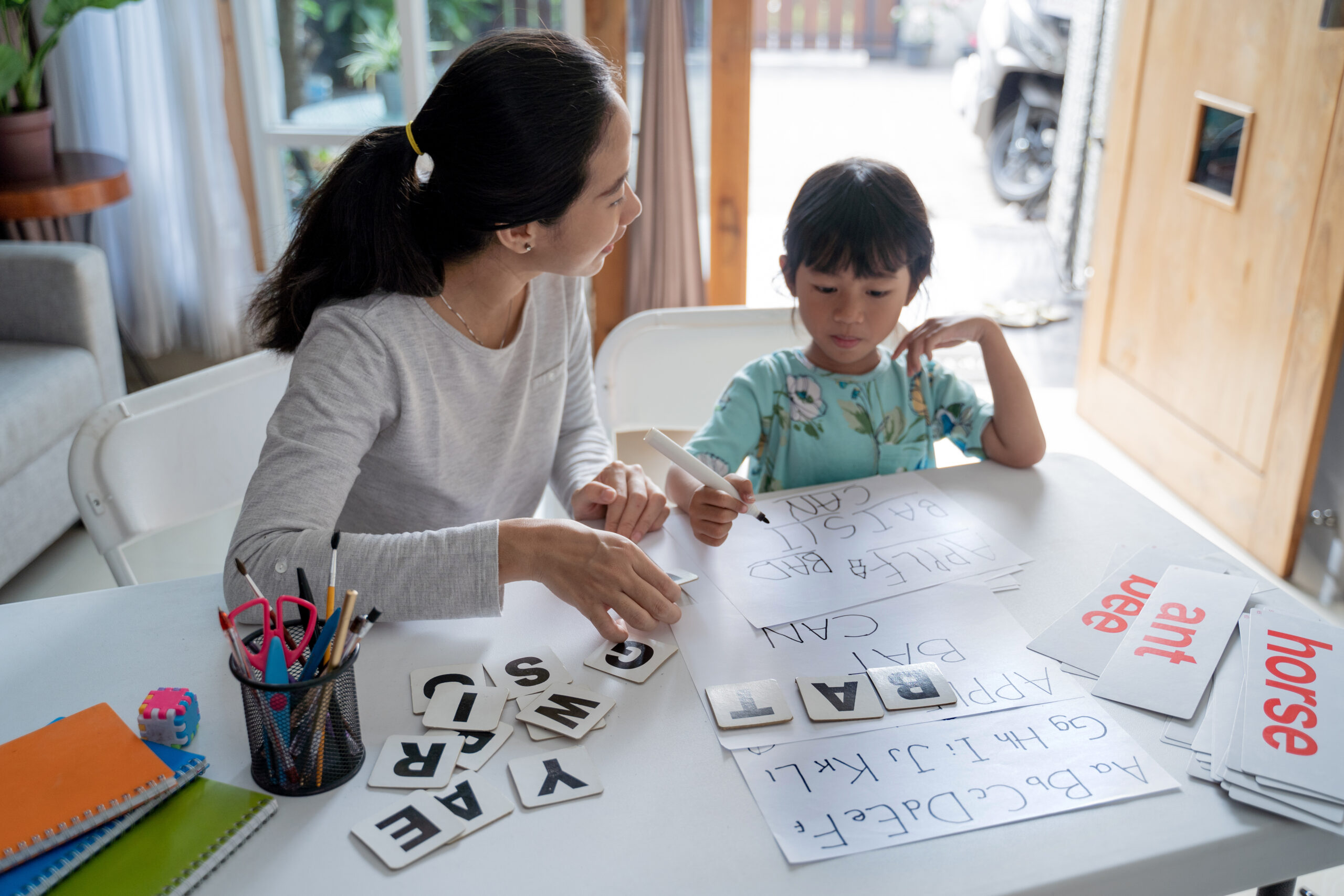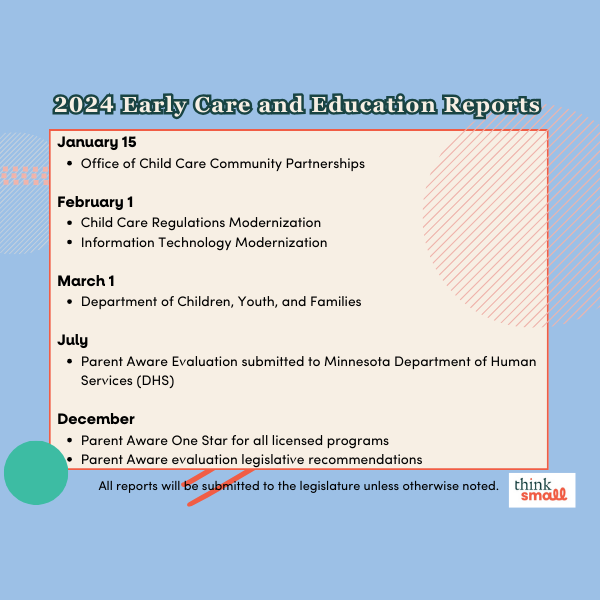Early Learning Scholarships will see significant changes in the months and years ahead. Early Learning Scholarships give low-income families financial support to help pay for quality early care and education. For more detail about what the changes mean, check out our other blog post. In this one, we’ll focus on when each of the new policies are scheduled to take effect, as laid out in the legislation.
One effect of what passed this year is that programs that participate in Parent Aware will continue to be eligible to accept Early Learning Scholarships as is current policy. The 2024 cutoff for only 3- and 4-Star programs to receive scholarships will not take effect.
What is an effective date?
Sometimes pieces of legislation include effective dates. These are instructions as to when changes should happen. An effective date is sort of like a due date—the time by which the change should be implemented. Effective dates can cover an entire program, or there can be different dates for each part of the program. Sometimes the change may be completed ahead of schedule. And sometimes the change may start to be rolled out by the effective date but then take longer to be in full effect.
Occasionally, agency staff implementing the program will go back to legislators and ask for changes to the effective date, usually because they need more time. So, while these dates are important markers into when various pieces will be in place, it’s also important to keep in mind that it is a part of a process that includes adjustments along the way.
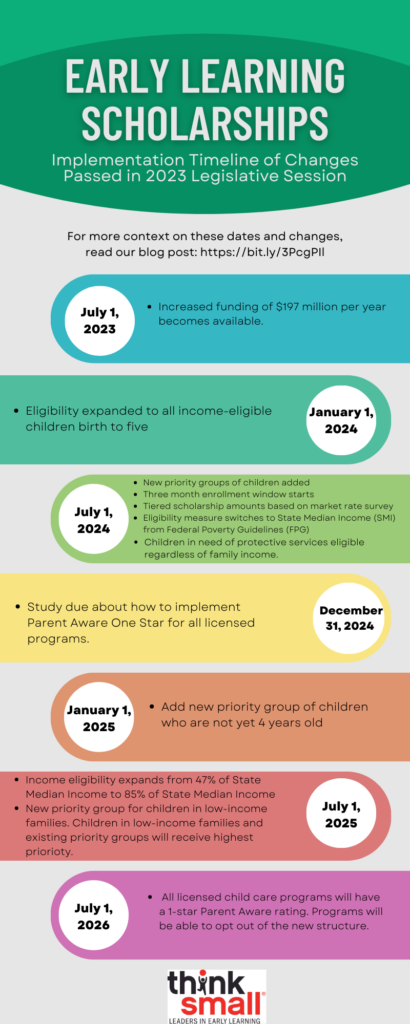
July 1, 2023
- Increase funding to $197 million per year.
January 1, 2024
- Expand eligibility to all income-eligible children birth to five
July 1, 2024
- Add new priority groups of children who
- Have an incarcerated parent
- Have a parent in a substance use treatment program
- Have a parent in a mental health treatment program
- Have experienced domestic violence
- Families will have to enroll in an early learning program within 3 months of being approved for a scholarship, with the opportunity to apply for an extension if necessary.
- The Minnesota Department of Education (MDE) will create a schedule of tiered scholarship amounts based on the market rate survey conducted for the Child Care Assistance Program (CCAP). Early Learning Scholarship amounts for low-income and priority children in 4-Star programs will have to, at a minimum, pay amounts that align to the 75th percentile of market rates.
- The measure of family income eligibility for Scholarships switches from 185% of the Federal Poverty Guideline (FPG) to 47% of State Median Income (SMI) to align with CCAP
- Children in need of child protective services are eligible regardless of family income
December 31, 2024
- Study due about how to implement Parent Aware One Star for all licensed programs.
January 1, 2025
- Add new priority group of children who are not yet 4 years old
July 1, 2025
- The income eligibility for Early Learning Scholarships expands from 47% of State Median Income to 85% of State Median Income.
- A new priority is introduced for children in low-income families, with children in low-income families and existing priority groups receiving the highest priority.
July 1, 2026
- All licensed child care programs will have a 1-star Parent Aware rating. Programs will be able to opt out of the new structure.
Additional Future Considerations
Other new and ongoing early childhood efforts will also interact with these changes. Legislation passed this year creates a new Department of Children, Youth, and Families. When this is operational, Early Learning Scholarships will be administered here instead of MDE.
The legislation also establishes the Great Start Scholarship Program, which combines CCAP and Early Learning Scholarships to create one funding stream, as recommended in the Great Start Task Force Report.
- By July 1, 2026, Commissioner must submit a report on the status of planning for the program.
- By July 1, 2028, administrative structures and systems for the program shall be in place
The Child Care Regulation Modernization project and the Parent Aware Evaluation will likely produce recommendations that will affect how these programs interact. Learn more about those projects and their timelines in a previous blog post.
By Marie Huey, Public Policy and Advocacy Staff Leader
